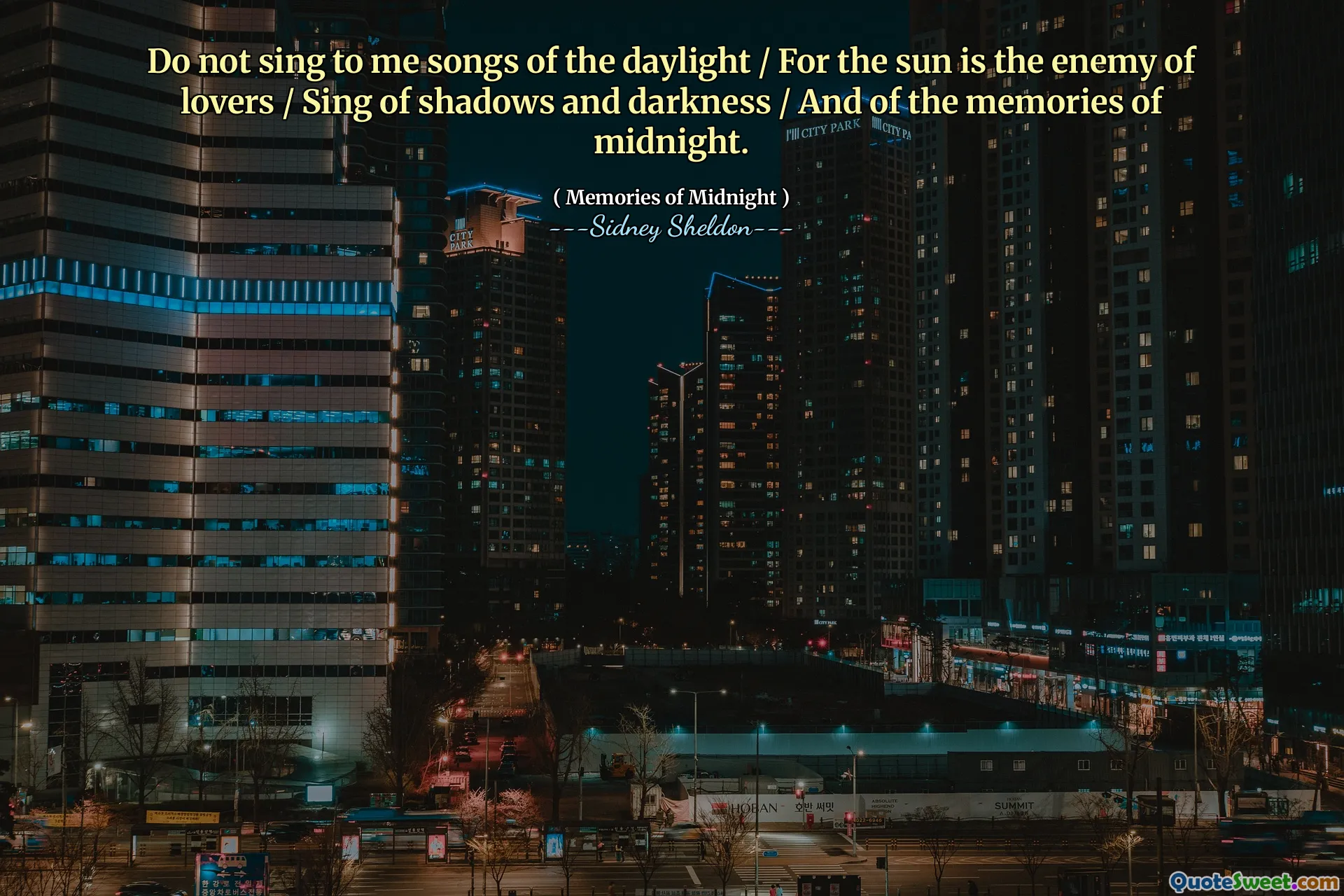
Do not sing to me songs of the daylight / For the sun is the enemy of lovers / Sing of shadows and darkness / And of the memories of midnight.
This quote captures a poetic juxtaposition between light and darkness, revealing a deeper commentary on the nature of love and intimacy. It suggests that the true essence of love often resides in the shadows and secrecy rather than in the brightness of truth and clarity. The speaker seems to prefer the mysteries and complexities that darkness provides, perhaps because they allow for a more profound form of connection—one that is less exposed and more emotionally raw. The darkness here is not seen as something negative but as a space where lovers can hide, dream, and remember vividly, especially during midnight—a time often associated with introspection and hidden thoughts. The imagery evokes a romantic longing for the intimacy that darkness fosters, as opposed to the harsh exposure of daylight that might reveal vulnerabilities and diminish the enchanting aura surrounding love's clandestine moments. It hints at the idea that true passion and memories are often rooted in those secret, quiet hours of the night, where intimacy can flourish away from prying eyes and societal judgments. Such reflections resonate universally because they tap into the primal human desire for genuine connection, which often thrives in privacy and obscurity rather than transparency. It also speaks to a paradox—how darkness, while associated with fear and uncertainty, can be a sanctuary for authentic emotion and remembrance, especially in the context of love and longing.






